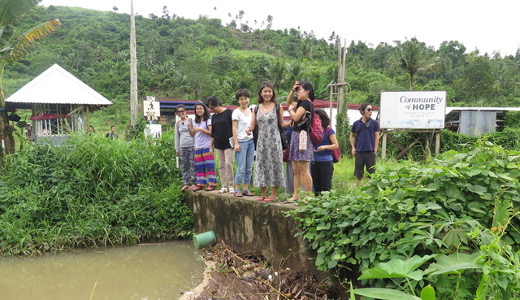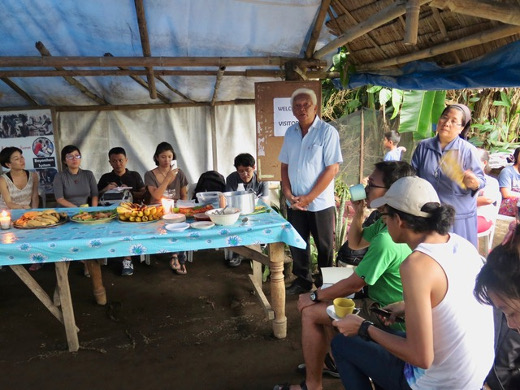
“If you think climate change is bad, you’re not prepared to live in this world at all,” said Fr Pedro Walpole SJ in an interview recently, pointing out that climate change is but one of nine factors that can push the earth out of circulation. The other eight are ocean acidification, biodiversity loss, land-system change, biogeochemical flows, stratospheric ozone depletion, freshwater use, atmospheric aerosol loading and chemical pollution.
“One of our difficulties is that we’re bound to a growth cycle that the world cannot possibly sustain because it cannot grow exponentially,” explained Fr Walpole who is Coordinator of the Global Ignatian Advocacy Network Ecology and the Jesuit Conference of Asia Pacific’s Reconciliation with Creation. “Human development has come to be equated with growth when it should really be about a cycle that respects life.”
 Despite this almost doomsday statement, Fr Walpole remains hopeful. In fact, seeking and finding occasions for hope is a key focus of the three-week course he teaches on “Human Development and Natural Resource Management,” a capstone course for the Asian Peacebuilders Scholarship dual degree programme between the University for Peace in Costa Rica, a treaty organisation mandated by the United Nations General Assembly, and the Ateneo de Manila University in the Philippines through the Environmental Science for Social Change where Fr Walpole is the Research Director.
Despite this almost doomsday statement, Fr Walpole remains hopeful. In fact, seeking and finding occasions for hope is a key focus of the three-week course he teaches on “Human Development and Natural Resource Management,” a capstone course for the Asian Peacebuilders Scholarship dual degree programme between the University for Peace in Costa Rica, a treaty organisation mandated by the United Nations General Assembly, and the Ateneo de Manila University in the Philippines through the Environmental Science for Social Change where Fr Walpole is the Research Director.
This year, the course was held from July 17 to August 4 with young graduate students from Japan, Philippines, Cambodia, Vietnam, Myanmar, Thailand, Laos and Indonesia. The course combines lectures with field engagement so for a week, the students visited relocation sites for Typhoon Haiyan survivors where they were encouraged to note signs and occasions of hope in the communities they met.
Fr Walpole says hope is important in development work. “If you don’t have hope, don’t go into development work of the human society. We need people who are willing to hope, who are willing to posit positive change, who are willing to contribute.”
One of the biggest difficulties he finds many youth face today is the lack of a sense of identity and the feeling of not being able to contribute. “If that’s what they’re feeling, their level of hope is pretty low,” said Fr Walpole. He explained that articulating a sense of hope means making them feel that they can contribute something and that they can be sustained in what they do.
Attitude change is important, he says, citing reducing meat consumption, using public transport and not having a big family as some ways of reducing one’s carbon footprint. “Those are fairly simple means, but If I live like that and continue to communicate with others I affect the global reality. That’s attitude, that’s knowledge, that’s skill,” he said.
 Although the course takes a global perspective, it also teaches context and how to engage with these realities on the ground. Fr Walpole summarises it as putting the person back into the dynamic cycle of life.
Although the course takes a global perspective, it also teaches context and how to engage with these realities on the ground. Fr Walpole summarises it as putting the person back into the dynamic cycle of life.
“Concept always has to have context. Most people have the concept of sustainable development, but they don’t know what to do with it.” He explained that the process of analysis is actually reflection. “We deal with complexities but there is also a simplification of the problem because I see that I’m connected.”
Being connected involves asking the big questions in life: Where am I willing to start from? Am I willing to change anything in my life? What does life mean to me?
“We get very confused in life; we think our wants are our needs. We fight so much for independence but then we find we’re alone and we don’t belong,” said Fr Walpole. “Once we start asking those questions, we find that what actually gives meaning to life is relations not just money.”
In the eight years that he has been teaching this course, Fr Walpole says that less than half of those who finish go back to their old jobs because they seek to advance as persons. He doesn’t take credit for it. “That is a path in their own life,” he said. “Hopefully the course has contributed.” It is enough reason for him to continue.

